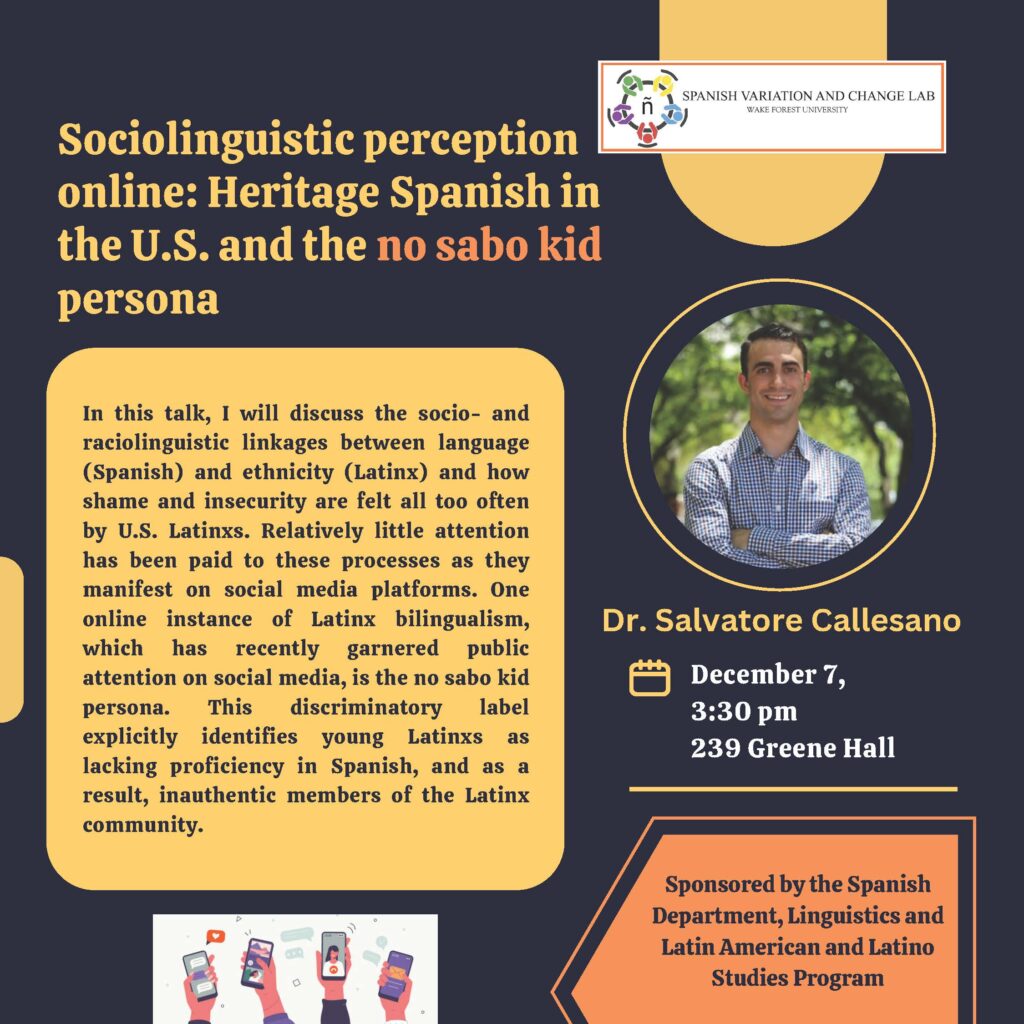Dr. Salvatore Callesano lecture Dec. 7
Join us at 3:30 p.m. on Thursday, December 7, in 239 Greene Hall for “Sociolinguistic perception online: Heritage Spanish in the U.S. and the no sabo kid persona,” a talk by Dr. Salvatore Callesano, Assistant Professor in the Department of Spanish & Portuguese at the University of Illinois Urbana-Champaign.
Talk abstract: Spanish plays an important and contentious role in the lives of Latinx communities in the U.S. Current national data show the following three points: nearly 20% of the population is Hispanic/Latinx, Spanish is the most used non-English language, and self-reported proficiency in Spanish diminishes across generations. These data point to the socio- and raciolinguistic linkages between language (Spanish) and ethnicity (Latinx) and how shame and insecurity are felt all too often by U.S. Latinxs, especially those with ostensibly less ability to use Spanish conversationally. However, relatively little attention has been paid to these processes as they manifest on social media platforms. One online instance of Latinx bilingualism, which has recently garnered public attention on social media, is the no sabo kid persona. This discriminatory label explicitly identifies young Latinxs as lacking proficiency in Spanish, and as a result, inauthentic members of the Latinx community. In this talk, I will show how linguistic and thematic features co-occur in the online production of the no sabo kid persona. TikTok videos (n = 95) were automatically accessed and coded for meta-linguistic data and video engagement statistics. Videos were then manually coded for the presence/absence of phonological, morpho-syntactic, and code-switching features, as well as discourse themes. I show that the no sabo kid online community is a mediated manifestation of ideologies surrounding U.S. Latinx bilinguals, where, for example, grammatical blending of Spanish and English index an inauthentic ethnicity. Then, I turn to the comment section of the videos and show the current state of a follow-up project that uses computational sociolinguistics to investigate emotional reactions through machine learning sentiment analyses. Finally, I argue for stronger considerations of the role of perception in the production and maintenance of sociolinguistic styles and personae, especially among marginalized speech communities.
All are welcome at this free public event, which is cosponsored by the Wake Forest University’s Department of Spanish, Latin American and Latino Studies, and the Linguistics.

